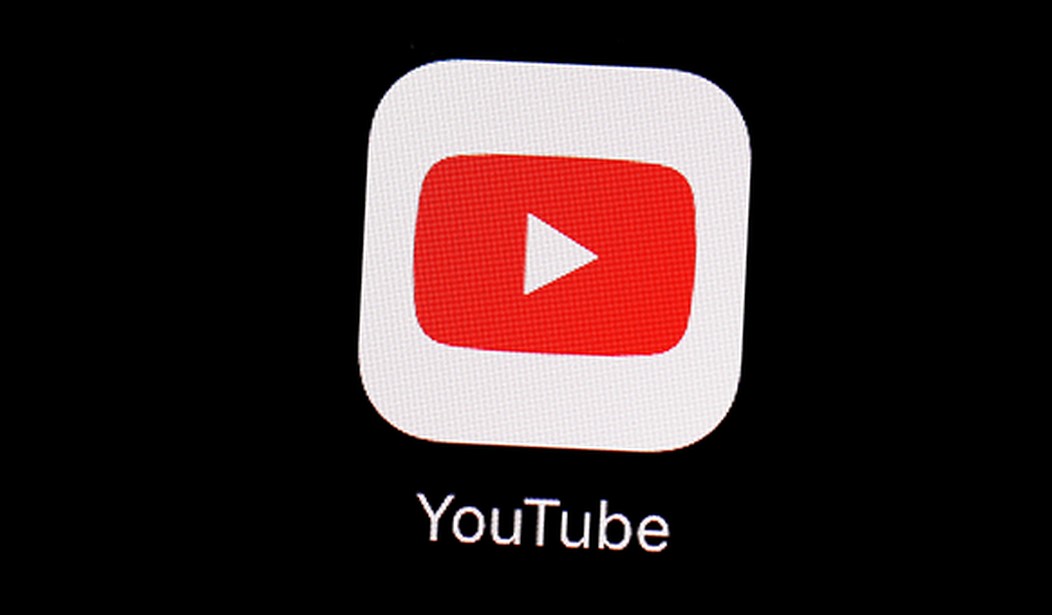YouTube didn’t exist a mere 20 years ago. Today, it is the second most visited website in the world, after Google Search.
YouTube is a de facto monopoly in the video streaming business. If you include paid services like Netflix and Disney Plus, YouTube is “only” 30–40% of the market. But if you do a realistic comparison with user-generated content platforms like Vimeo and Rumble, YouTube owns closer to 80% of the market.
After its inception, YouTube was quickly embraced by the Second Amendment community. There are numerous “Gun Tuber” channels that cover a broad swath of topics from basic firearms safety to tactical shooting to testing ammunition to gun politics. It’s a great platform to learn about firearms.
Charting the same course as the rest of Big Tech, YouTube started out with a lowercase ‘l’ libertarian attitude but slowly moved towards censorious nannyism. Emblematic of this is their crackdown on firearms content.
YouTube’s moves have been multifarious: they have deprioritized firearms content, age-restricted it, banned ads and demonetized it, and the latest development is that they have stopped allowing sponsorships of gun videos.
Gun Tubers tend to skew on the free market side of the spectrum. It goes with their overall belief in freedom. They have been taking it on the chin, alerting their viewers about what’s going on, while clearly saying that YouTube gets to set the terms and they respectfully disagree with it. They have also tried to migrate their content to Rumble and GunStreamer.
However, those platforms don’t have the reach of YouTube, whose moves will result in the ghettoization of gun culture onto low traffic, fringe corners of the Internet.
Clearly, YouTube has been abusive of Gun Tubers, and I suspect it’s the result of ideological stances and not rational business decisions. There is a LOT of smut on YouTube, but their management has reserved its scorn for Gun Tubers.
As Gun Tubers themselves have stated, YouTube is a private platform and Section 230 of the Communications Decency Act gives them broad latitude in what content gets shown, how it’s displayed, etc. However, YouTube’s behavior is abusive, targeted, and seems to come straight out of a monopolist’s handbook. This is where US Antitrust Law comes into play.
Before I begin, it’s important to address any accusations of hypocrisy. I am a very free market guy, so it’s going to sound hypocritical for me to talk about the relevance of antitrust law in ending YouTube’s abuse. My defense is that I didn’t write those laws; all I’m talking about is using the laws, as written by past Congresses, to roll back abuse. As an analogy, I oppose all income taxes and think that the Sixteenth Amendment was a colossal mistake; that doesn’t mean that I won’t use the tax code, as written by others, to my advantage. I have every right to lawfully minimize my tax bill, as does every American, whether it’s through tax-loss harvesting, charitable donations, or tax-efficient asset allocation.
A free market solution is ideal, but what’s wrong with using a regulatory baton that the anti-Second Amendment side wouldn’t hesitate for a nanosecond to use against us? We can talk about signing the regulatory equivalent of the START treaty with “progressives” but that’s a discussion for another day. Right now, the Regulatory State as it exists, is a tool that needs to be deployed to defend our freedom.
So, do Gun Tubers and gun companies have an antitrust case against YouTube? I believe they do, and will try to make my case as a non-lawyer with absolutely no legal training whatsoever.
The gist of American antitrust law is to promote competition, prevent monopolies and unfair business practices. A company is not allowed to stifle competition in a way that significantly reduces market competition or harms consumers.
Although YouTube’s “moderation” is ostensibly allowed by Section 230 and used to justify deprioritizing and demonetizing gun content, limiting its access and reach, there is a case to be made about their anticompetitive behavior and consumer harm.
YouTube’s firearms policy states the following:
Content intended to sell firearms, instruct viewers on how to make firearms, ammunition, and certain accessories, or instruct viewers on how to install those accessories is not allowed on YouTube.
[...]
Don’t post content on YouTube if the purpose is to do one or more of the following:
Sell firearms or certain firearms accessories through direct sales (e.g. private sales by individuals) or links to sites that sell these items.
Selling firearms, especially through traditional retail channels, is 100% a legal activity in all 50 states. Each sale must go through a background check. It’s federal law. Likewise, children cannot buy a firearm; sales are restricted to adults. Using Section 230 as a crutch to impede this lawful commerce is harmful to the companies that are in the business of selling those firearms. It harms consumers who may be interested in participating in that lawful commerce. It also harms the content creators, who have to jump through weird publication hoops.
Outdoor Life has an interesting article (archived link) that explains recent changes, elaborating on recent videos by gun tuber Hickok45:
“Essentially, the new policy that pertains to this video — and what the problem is here is that all sponsorships from companies that are either firearms companies or companies that deal in firearms accessories are a complete violation of YouTube’s policies,” John says in the video.
They went on to say that any YT content sponsored by a gun company, retailer, or gun accessory company would likely be removed and possibly receive strikes. If a channel receives three strikes from YouTube for policy violations, it’s gone forever.
[...]
The policy change does indeed retroactively apply to anything posted before it went into effect and that if content is found to be in violation, YouTube will remove it, says the company spokesperson who spoke with OL earlier this month.
After gun tubers spend lots of time and money creating content, YouTube changes its mind on a whim, and goes back and retroactively deletes what was kosher when published.
A video cannot specifically state that a gun-related company is a sponsor. For example the host cannot say, “This video is brought to you by Walther.” Nor can they thank a gun company or firearms retailer for supporting their channel. This has been the case for years but has often gone unenforced, according to the YouTube spokesperson.
[...]
In short, YouTube doesn’t allow sponsored promotions for gun, ammo, and firearm accessory manufacturers and retailers or their websites in videos. That means verbally, with in-video text, or in a video’s description or meta data.
YouTube, in my opinion, has exposed its harmful, monopolistic behavior. There’s more evidence:
Now, not only are content regulations tighter than ever, but a monetized gun channel also faces severe restrictions on how much money it can make through the platform advertising program, because YouTube won’t let big-time ads run with gun content.
“You’re not going to see a Ford commercial or, like, Olive Garden advertising in front of a gun channel. You’re going to see a holster company or a reloading company, and those ads are very, very, very small; they pay very little,” Nash says.
What if Ford knows that there’s an overlap between people who buy firearms and F-150 trucks, and wants to advertise on firearms channels? YouTube just got in the way, harming Ford, content creators, and consumers.
“There’s no other platform that we can turn to that will give us the views and reach non shooters. That’s the key: non shooters. To teach them correct gun safety and gun care and how to handle a firearm, and all this other stuff.”
Nash says he’s tried the move to an alternative video platform and found the audience and growth potential just aren’t there.
“If you go over to Rumble, they’re all conservative. You’re preaching to the choir over there,” he says.
This is YouTube’s real goal: to harm gun culture by ghettoizing it. A free market alternative, given enough time, will emerge. But why wait when you have legal and regulatory tools at your disposal? Would you not fully deduct your mortgage interest on your taxes because you believe the tax code is unfair to renters?
“YouTube’s the beast, and I’m a capitalist one hundred percent, through and through. It’s their platform, it’s their rules. I may not like the rules, but I have to abide by them if I want to stay on there.”
Same here. YouTube has its rules and I don’t like them either. But there are uber-rules, namely Antitrust law. It’s time to deploy it. I hope lawyers reading this can make a cogent case.









Join the conversation as a VIP Member